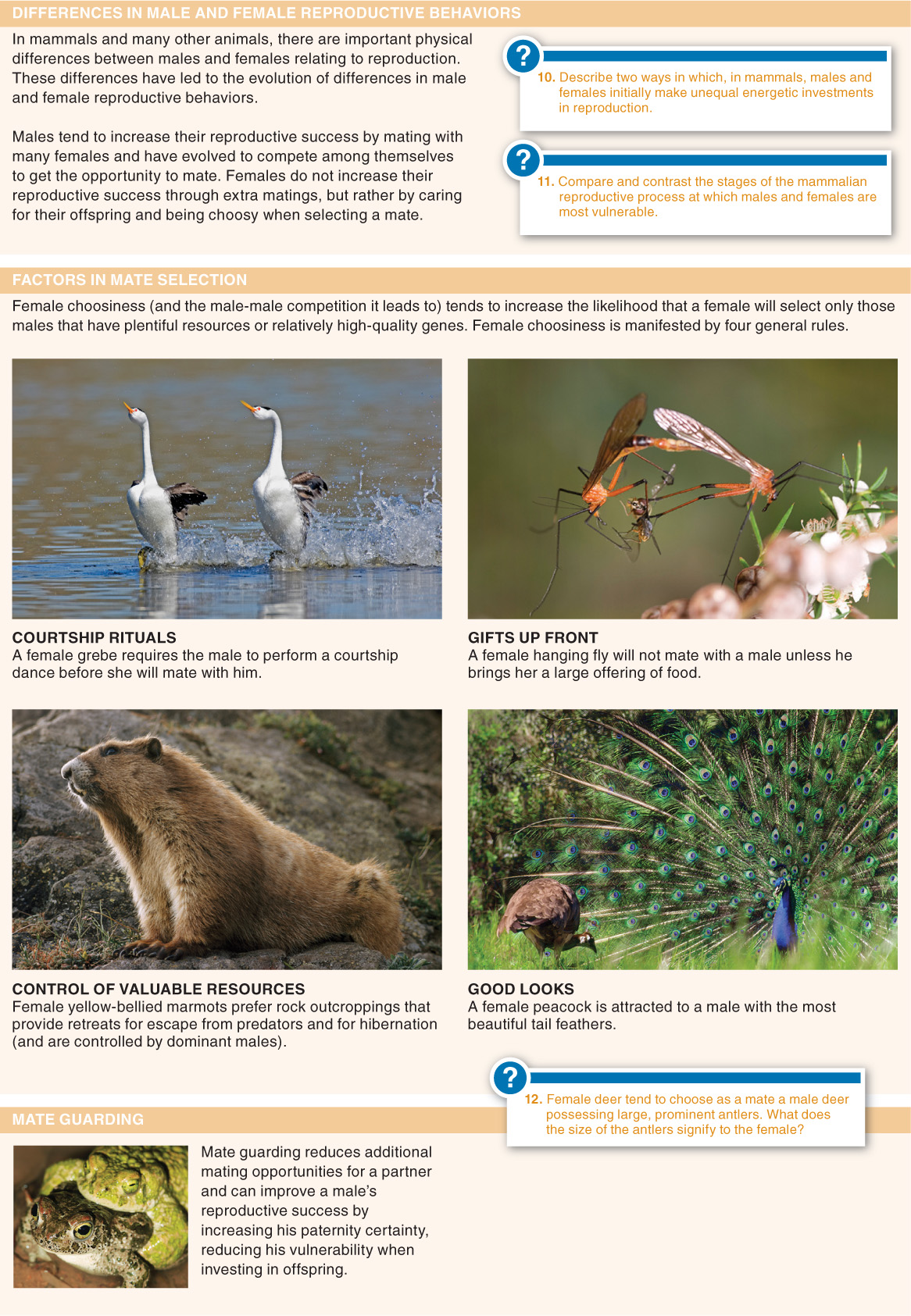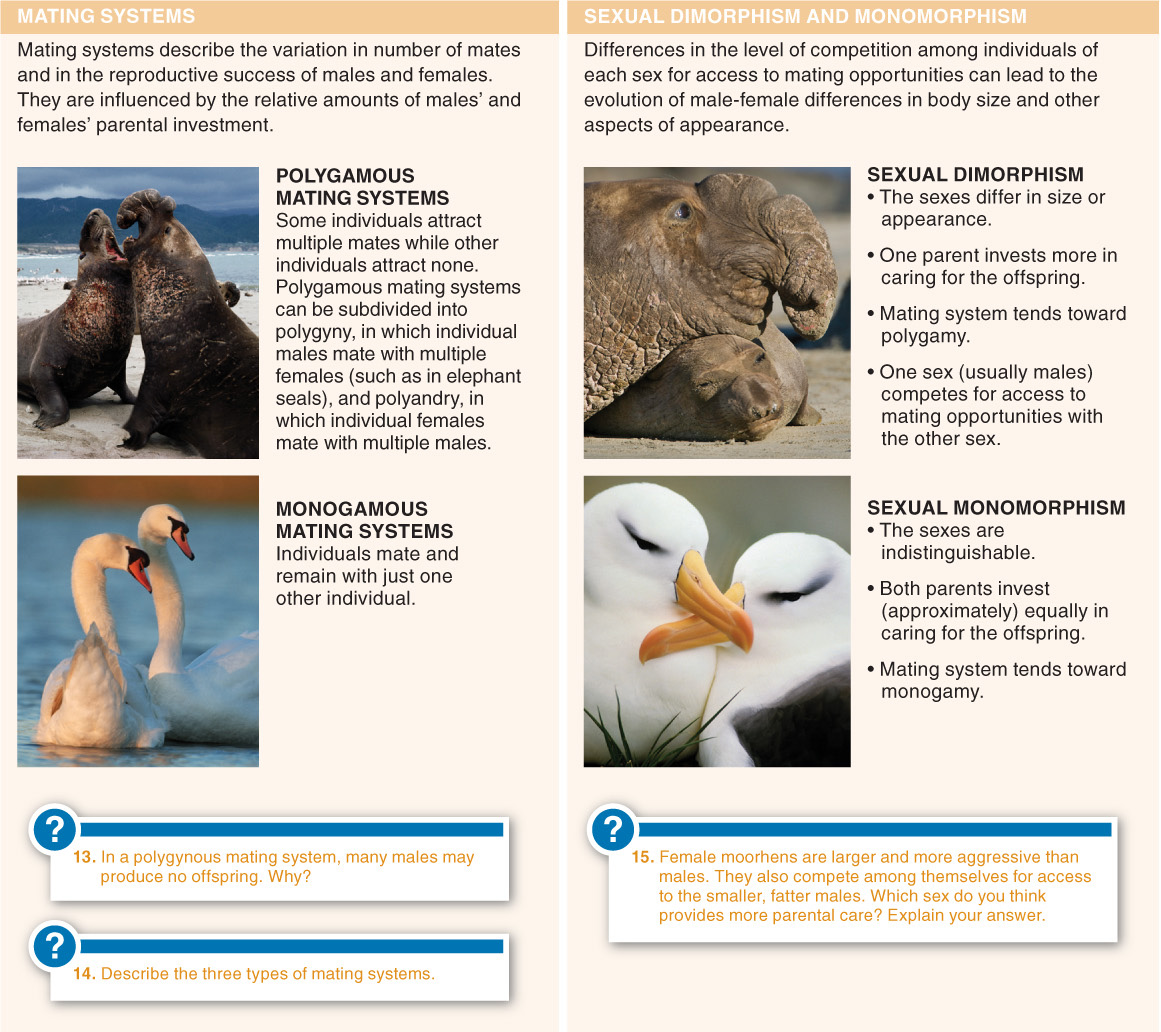9.10–9.16
9.10–Sexual conflict can result from disparities in reproductive investment by males and females.
There are differences between males and females in the patterns of investment in reproduction.


Q
All of the following conditions are necessary for reciprocal altruism to evolve in a species except:
- a) the ability to recognize different individuals.
- b) the ability to punish cheaters who do not reciprocate.
- c) repeated interactions with the same individuals.
- d) in at least one of the sexes, individuals always remaining to live near their kin.
- e) None of the above are necessary for the evolution of reciprocal altruism.

In a situation where males guard eggs and care for the young without help from the female, which of the following statements would most likely be correct?
- a) The males are larger and more brightly colored in order to attract the very best females.
- b) The males and females are equally brightly colored, but males court females aggressively.
- c) The population is monogamous with no sexual dimorphism.
- d) A single male controls a harem of females to which he has exclusive reproductive access.
- e) The females are more brightly colored than males and court males aggressively.

In mammals, as well as many other animals, males generally compete for females. The best explanation for this phenomenon is:
- a) males are more aggressive.
- b) males, on average, have higher fitness.
- c) females have a higher parental investment.
- d) males are choosy.
- e) females are better looking.

Mate guarding is a reproductive tactic that functions to:
- a) reduce paternity uncertainty.
- b) increase the female’s investment in offspring.
- c) reduce the male’s reproductive investment.
- d) reduce the female’s fitness.
- e) increase the number of mates to which a male has access.

403